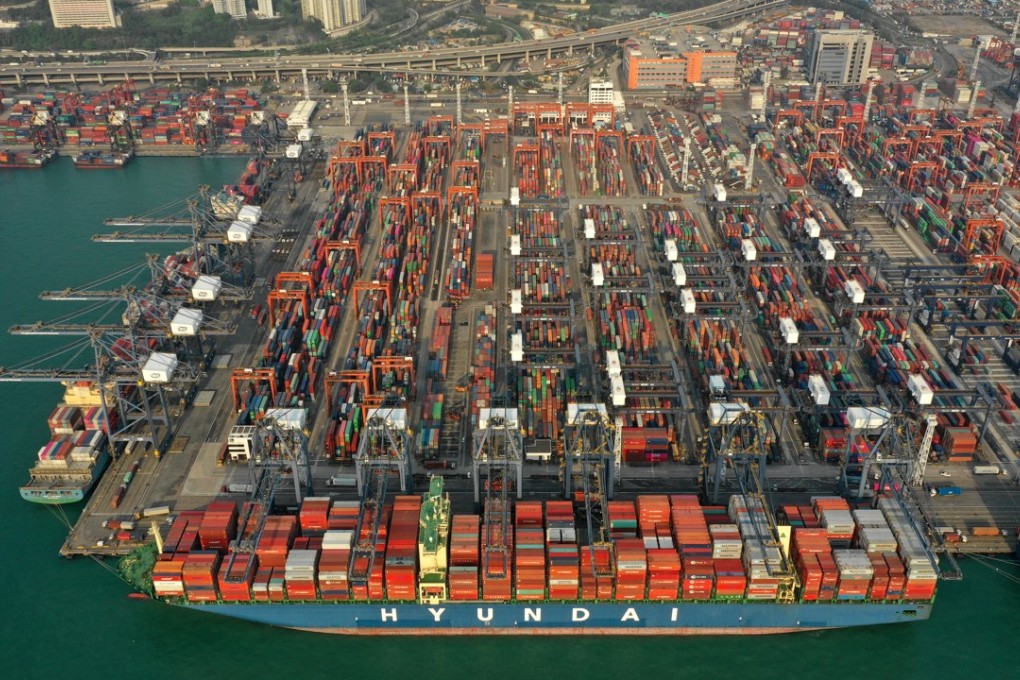Opinion | As the trade war intensifies, the maritime industry in Hong Kong must adapt to stay afloat
- Lawrence Leung and Collin Wong say Hong Kong’s maritime logistics sector will be hard hit by the trade war as the majority of its cargo goes on to the mainland
- The Hong Kong port should consider implementing a mechanism that allows terminal operators to share berths, cranes and yards

Nowadays, consumer goods are manufactured in such a way that different components of a product are sourced from around the world. For instance, a “Made in China” TV may consist of a glass panel from Japan, a panel backlight from Singapore, a circuit board from Korea, chips from Germany, and so on. Any extra tariffs imposed by the US on television sets assembled in China would raise prices and lower American sales. If trade between the US and China falls, this will have a negative economic impact on countries in the supply chain, resulting in GDP losses for all.
Theoretically, if tariffs increase, China can find new customers to replace those in the US. Likewise, producers can relocate away from China to avoid new taxes, while component manufacturers could provide their goods and services to new buyers. In practice, however, the transition could take several years.
In 2007, US-Canada trade (US$565.9 billion) and US-China trade (US$384.3 billion) were the top two bilateral trade relationships globally. Ten years later, in 2017, US-China trade is the top bilateral trade relationship in the world, totalling US$635.3 billion. World trade and global manufacturing patterns have changed significantly over the years, shaping North American and Asia-Pacific economies into their present forms. If the US-China trade war continues, the growth from years past could easily be wiped out.
Watch: How the US-China trade war affects Hong Kong
Such a trade war affects global transshipment. This is especially true for Hong Kong’s maritime logistics sector, where over 70 per cent is transshipment business – cargo that is sent onwards to other ports in Asia. More importantly, China-related transshipment makes up 80 per cent of Hong Kong’s transshipment business. Furthermore, maritime cargo represents over 90 per cent of Hong Kong’s overall cargo volume. Clearly, Hong Kong, as a trading hub, will be hard hit by the US-China trade war.

